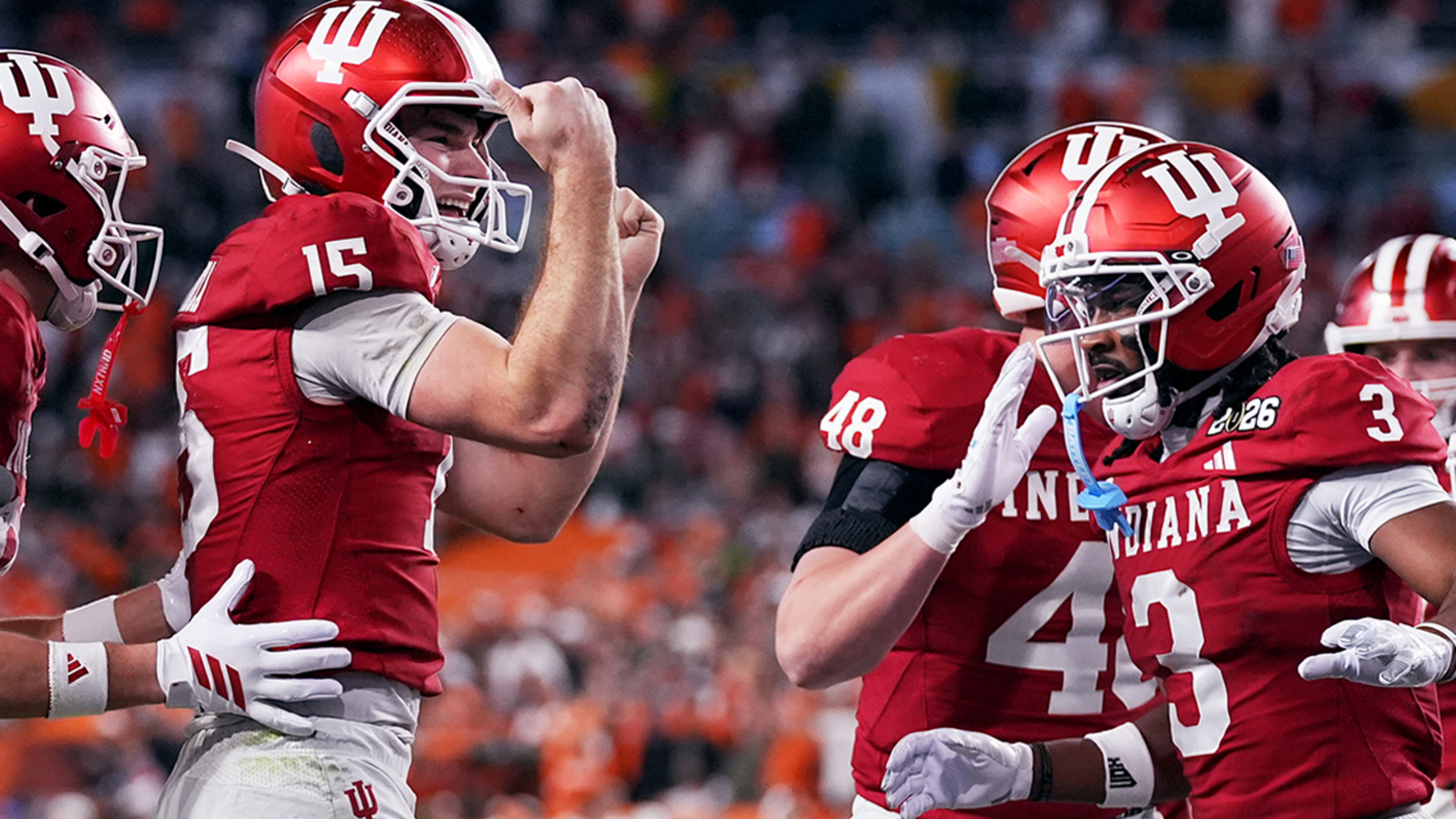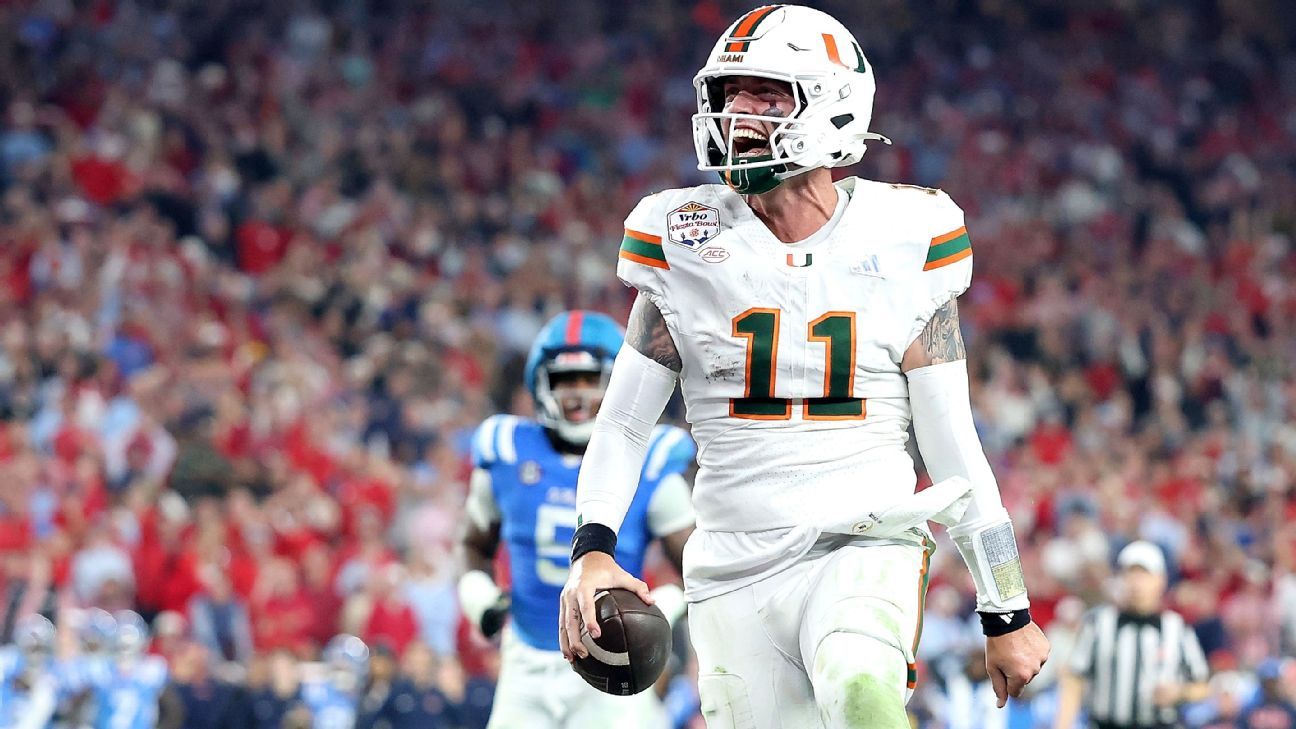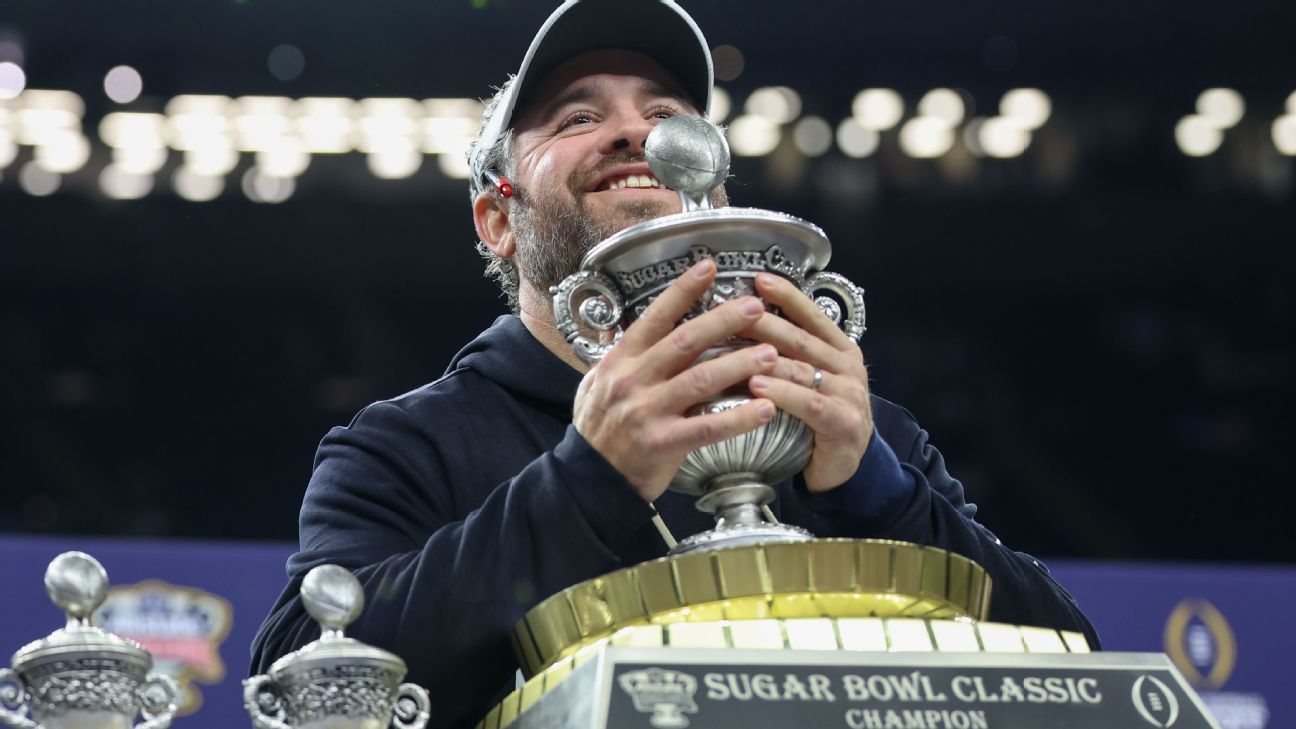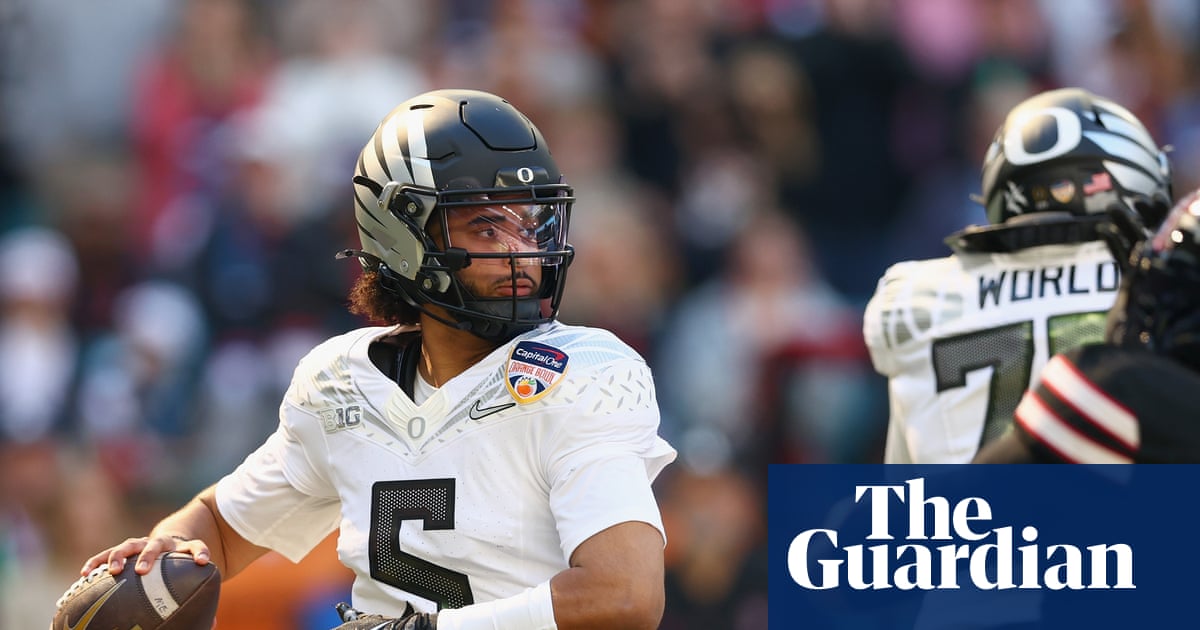National Football League
fromESPN.com
2 weeks agoBig Ten eyes 24-team CFP, no league championship games
The Big Ten proposes a 24-team College Football Playoff plan with a 23-plus-one selection model, elimination of conference championships, and on-campus first-round games.












































